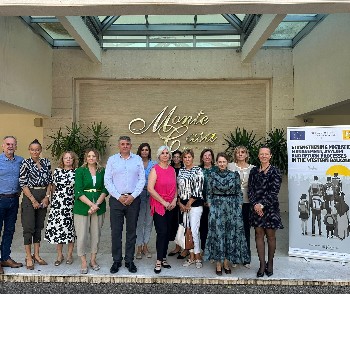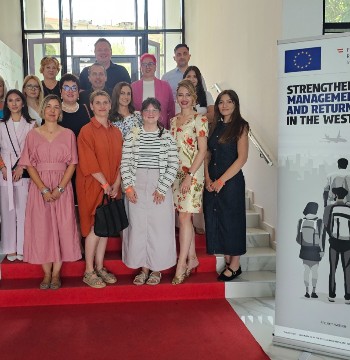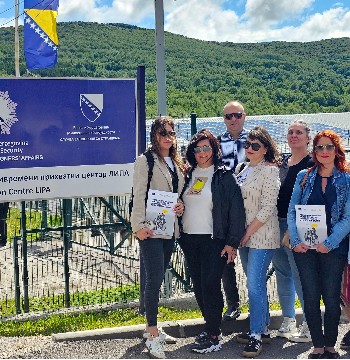Study visit for Bosnia and Herzegovina authorities managing asylum
In the period from 13th to the 16th of October, Hilfswerk International organized a study visit to Vienna (Austria) in cooperation with Ministry of Security BiH, which indicated a keen interest in receiving firsthand knowledge and useful advice from an EU member state. The main goal of the study visit was to offer a chance for focused peer interaction, presenting ideas and real-world examples that can be tailored to Bosnia and Herzegovina's institutional, legal, and operational conditions. The study visit accommodated relevant attendees from the field of migration related topic, including representatives from the Ministry of Security BiH (Asylum Sector) as well as representatives from the Service for Foreigners' Affairs, decision-makers and asylum officers engaged in the asylum process. Among the Austrian participants, the presence of memers from the Joint Coordination Platform (JCP), The Federal Agency for Reception and Support Services (BBU), Federal Office for Immigration and Asylum (BFA), and the regional center in Austria as well as the Border Police, significantly contributed to the study visit.
The objectives of the visit were releted to the improvement of institutional ties as well as obtaining hands-on knowledge of EU legislative and procedural changes with the goal to enable participants to witness cutting-edge procedural models, useful case management tools and inter-institutional coordination mechanisms by interacting directly with Austria's asylum authorities. Additionally, this visit helped BiH to move closer to EU standards for its migration, asylum, and return processes while cultivating partnerships that can enhance collaboration, information sharing and cooperative projects.
The visit was focused on operational procedures that guarantee equitable treatment of applicants, efficient use of technology and cooperation across asylum, immigration, and return functions in addition to procedural and legal insights while particular focus was placed on the integrity and accountability of the system, as well as on decision-making in delicate and complicated cases including applicants and person belonging to a vulnerable category.
This study visit has given the participants the opportunity to study Austria's procedures for allocating priority to urgent or difficult situations while maintaining procedural protections. The adoption of digital solutions that could be tailored to BiH's operational framework for case tracking, workload distribution, coordination among decision-makers, appeals bodies and reception facilities will receive particular consideration.
Some of the most valuable activities were the field visits to Austria's reception and detetion centres and the security tour of the Vienna airport, where representatives of the BiH authorities had the opportunity to learn from police officers, case officers and experts, on how an application is processed from the begining to end, including all of the outcome possibilities. Observing how Austria upheld the credibility of its asylum system by effectively implementing return decisions for individuals ineligible to stay proved valuable for participants from BiH. Gaining insight into Austria’s methods for detecting and addressing system vulnerabilities—such as fraudulent claims or misuse—helped the participants from BiH to strengthen their own protective measures and reduce the risk of exploitation. This approach ensured that resources were allocated to legitimate asylum seekers and helped preserve public confidence in the system.
The exchange also examined how Austria successfully balanced timely case resolution with strong identity verification, fraud prevention, and inter-agency data sharing. Additionally, participants assessed how the Austrian system managed appeals and judicial oversight, ensuring that enforcement actions remained lawful, proportionate, and aligned with international standards.
This study visit was organized as part of the project “Strengthening Migration Management, Asylum and Return Processes in the Western Balkans” which Hilfswerk International is implementing together with the Joint Coordination Platform (JCP). The project is funded by the Asylum, Migration and Integration Fund (AMIF) and the Federal Ministry of the Interior of Austria.
More about the project: https://hwi.ba/en/projects/refugees-migrants-displaced-persons/strengthening-migration-management-asylum-and-return-processes-in-the-western-balkans/22



